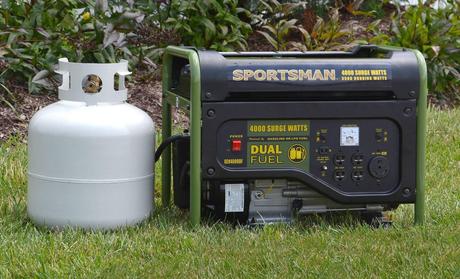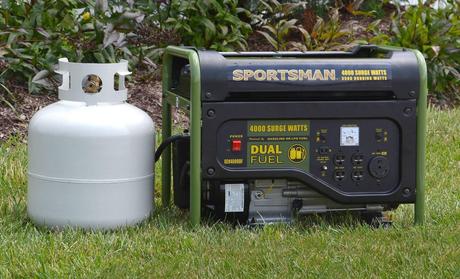

Power outages are no fun. Hours without electricity can lead to uncomfortable, even unsafe temperatures, and rotten food other headache. Hurricane season is rising, so it's time to think about generators (and others) emergency Logs). Fortunately, there are plenty of portable generators in the market that can jump in and jump in keep things going.
Things to consider
Fuel type
Some generators run on gasoline, others run on gasoline Liquid propane tanks. Deciding which type of fuel is likely to be used depends on your available resources.
If you're in a rural area with no gas station nearby, stop at one Propane tank Practical may be the best choice for emergency preparedness. If you have quick access to gasoline, consider the smallest model for your home so you don't burn more fuel than necessary. If you want both options, there are dual-fuel models that run on both types of fuel.
power
You should make sure that you choose a model that has enough power to run everything you need in an emergency. Two terms are important here: Starting watt and running watts.
Startwatt is also known as "peak power" and is the highest possible power that a generator can produce to get a device engine running. Generators will not sustain this performance over the long term. Think of this as the amount of energy it takes to start your refrigerator.
Running watts are the watts a generator can produce for hours while powering devices. You need a generator with at least as many running watts as the watts used by your household appliances.
As a rule of thumb, to calculate how much power you need, add the power of all the devices you want to power and multiply by 1.5. You can also search for the starting watts required for your most power hungry device and add them to the grand total to determine your performance.
This information can be found on a sticker in your device or in the manufacturer's manual. If your appliance lists amps and volts instead of watts, multiply the two to get the wattage. Whatever the sum of the watts you need, this is the minimum operating power your generator needs to produce.
For example, I would have to power an 864 watt at home dishwasher1,440 watt refrigerator and 3,600 watt oven. This means that my generator must produce at least 5,904 running watts.
price
Of course, price is a factor, and in general you pay more for better performance. You can find good generators starting at $ 300 or you can spend a lot of money on maximum performance and end up with a $ 2,000 model.
In order to remain as economical as possible, limit the number of large devices that you operate with a generator. Consider a mini fridge and microwave instead of full size fridges and ovens. When the weather isn't dangerously hot or coldSkip powering your heating or cooling system. If this all sounds a bit overwhelming, there are several handy calculators online that you can use to round things up.
The following generators are not CNET approved, but they are the most popular and top-rated models on the internet. We have divided them into low, medium and high price ranges. You will also find information on the starting power of each generator, the running time at half power and the type and capacity of fuel.
Generators $ 500 or less
These generators all got high marks from consumers, and none of them will break the bank. If you have a small house or just a few electrical appliances, you don't have to spend a lot of money to get a good generator.
The cheapest model on our list, the Sportsman GEN400DF, is only $ 300. This is an affordable dual fuel model that can run on either a 3.6 gallon fuel tank or a standard propane tank.
With up to 10 hours of gasoline run time at 50% load and 12 hours of propane, the athlete can keep things going while you sleep a full night before you need more fuel. It has four 120-volt outlets, one 120-volt RV socket, and one 12-volt DC socket.
At 4,000 starting watts and 3,500 running watts, it's not the most powerful on our list. However, if you're using small devices or just one or two large devices, this model should do the job.
Generators $ 500- $ 1,000
Increase your budget and you can double your output with these generators.
Generators starting at $ 1,000
These high-end units may be overkill for smaller homes, but if you're looking for high starting watts, this group is your best bet.
Similar to the Generac model, this Champion generator offers a little more power.
You have 11,500 starting watts and 9,200 running watts, plus a 7.7 gallon fuel tank and 459 cc engine, which can run your generator at 50% load for 10 hours.
One 120/240 volt 30 amp interlocking socket, one 120/240 volt 50 amp socket, and four 120 volt 20 amp GFCI protected household sockets are included. A digital display reads output and maintenance messages.
The Best Fire Pits for 2020: Solo Stove, Tiki, Kingso, Hampton Bay, Kingso, and more
Camping in the back yard of your house? Here is great gear to get you started
Emergency Bag: Everything you need to evacuate your home
